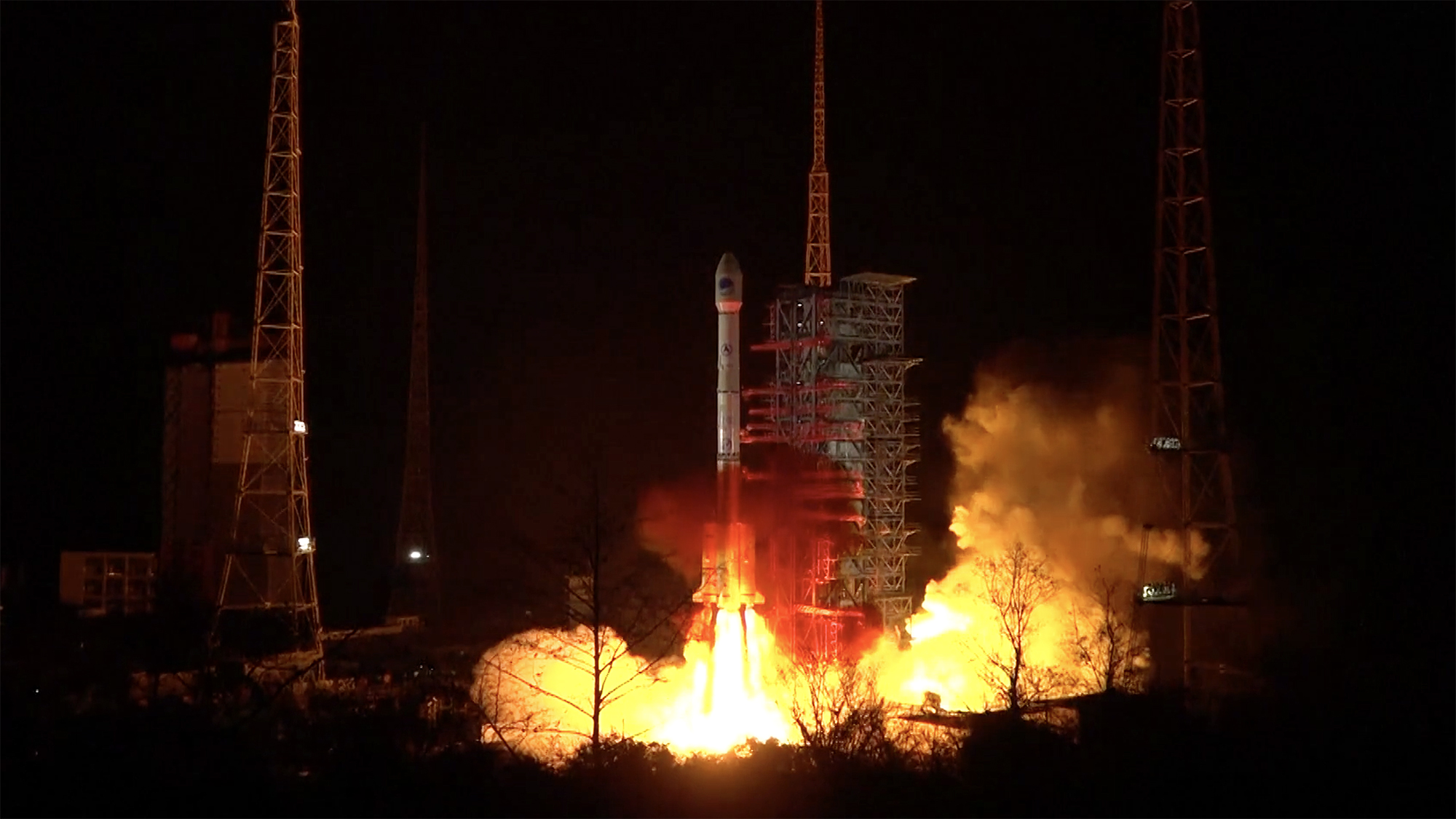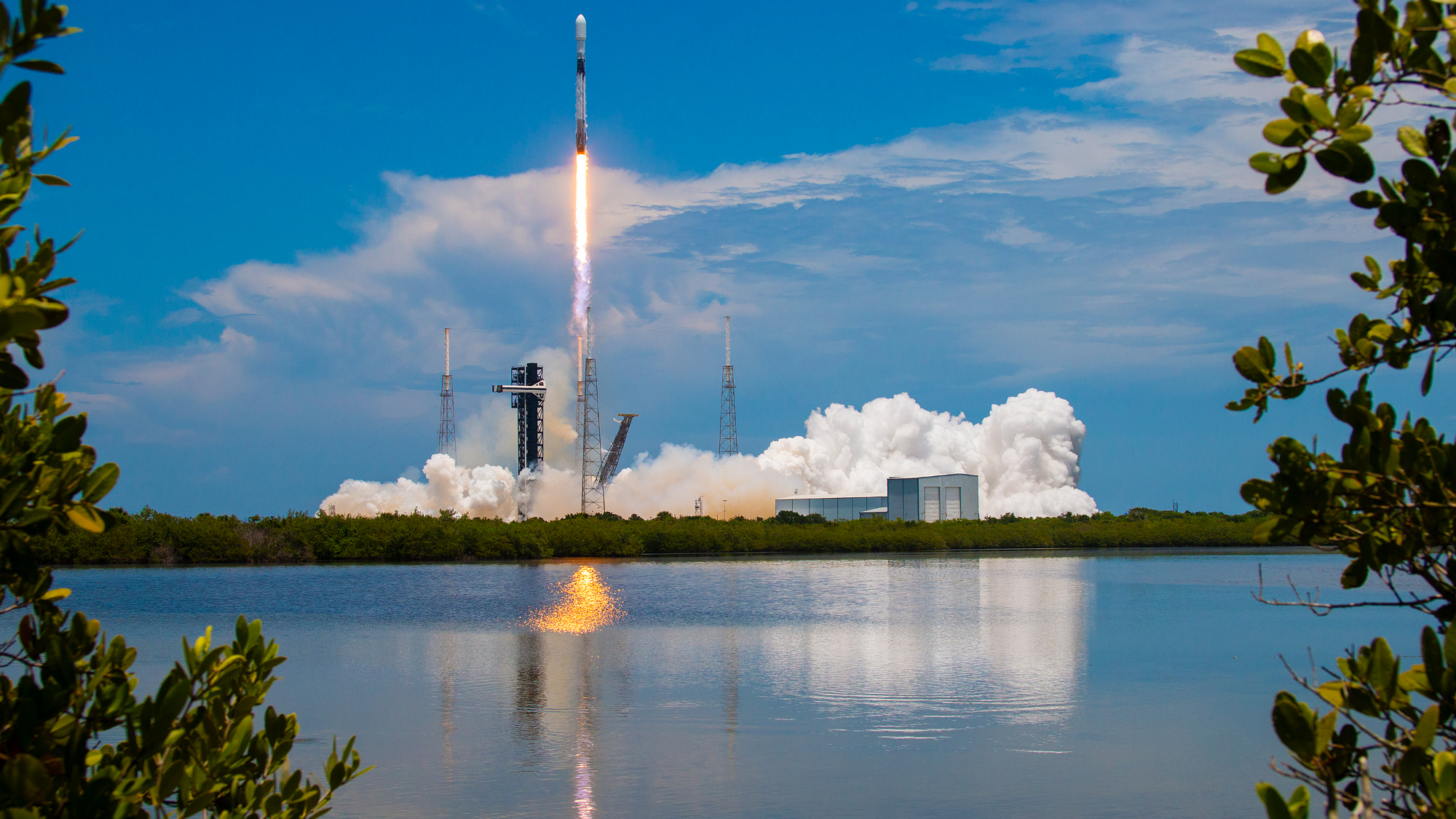Chinese Long March 3B rocket fails during launch of Indonesian satellite
It's the second Chinese rocket failure in a month.

A Chinese rocket carrying a new communications satellite for Indonesia has failed to reach orbit in a launch gone awry, the second failure for China's space agency in less than a month, state media reported today (April 9).
The Long March 3B rocket lifted off today at 7:46 a.m. EDT (1146 GMT) from China's Xichang Satellite Launch Center in the southwestern province of Sichuan, where the local time was 7:46 p.m. on Thursday night, according to the Xinhua News Agency. The rocket was carrying the Palapa-N1, also known as the Nusantara Dua, a next-generation satellite for broadband and broadcast communications built for the Indonesian joint venture of Indosat Ooredoo and Pasifik Satelit Nusantara.
The first and second stages of the three-stage Long March 3B rocket appeared to perform well during the outset of Thursday's launch. But something went wrong with the third stage, raining debris back to Earth and destroying the Palapa-N1 satellite, Xinhua reported.
Videos posted on China's social media site Weibo showed several views of the initial launch. Other videos from Guam showed what appeared to be fiery debris streaking across the sky.
#UPDATE: #Guam Homeland and federal authorities monitoring reports of “unidentified object” seen falling from the sky @PostGuam pic.twitter.com/3u69abhNu4April 9, 2020
Officials with the Guam Homeland Defense and Civil Defense (GHS/OCD) and the Mariana Regional Fusion Center (MRFC) said the fireball was likely connected to China's failed launch. They were monitoring all events in the region, "including widely circulated videos of a fiery object over the Marianas sky this evening," the officials said in a statement.
"In concert with federal partners, GHS/OCD and MRFC identified that the object was likely connected to a scheduled satellite test launch from China," they added.
The failed Long March 3B launch marks China's second launch failure in less than a month. On March 16, a Long March 7A rocket failed to launch a classified satellite into orbit during a debut test flight from the Wenchang Satellite Launch Center on China's southern Hainan Island.
Breaking space news, the latest updates on rocket launches, skywatching events and more!
China was not the only country launching rockets today.
A Russian Soyuz rocket successfully launched a new U.S.-Russian crew to the International Space Station from Baikonur Cosmodrome in Kazakhstan at 4:05 a.m. EDT (0805 GMT). That mission successfully reached the space station six hours later, and NASA astronaut Chris Cassidy and cosmonauts Anatoli Ivanishin and Ivan Vagner joined the station's Expedition 62 crew.
- Latest news about China's space program
- Watch China simulate a Mars landing for 2020 mission to the Red Planet
- Russia and China are teaming up to explore the moon
Email Tariq Malik at tmalik@space.com or follow him @tariqjmalik. Follow us @Spacedotcom, Facebook and Instagram.
OFFER: Save 45% on 'All About Space' 'How it Works' and 'All About History'!
For a limited time, you can take out a digital subscription to any of our best-selling science magazines for just $2.38 per month, or 45% off the standard price for the first three months.

Tariq is the award-winning Editor-in-Chief of Space.com and joined the team in 2001. He covers human spaceflight, as well as skywatching and entertainment. He became Space.com's Editor-in-Chief in 2019. Before joining Space.com, Tariq was a staff reporter for The Los Angeles Times covering education and city beats in La Habra, Fullerton and Huntington Beach. He's a recipient of the 2022 Harry Kolcum Award for excellence in space reporting and the 2025 Space Pioneer Award from the National Space Society. He is an Eagle Scout and Space Camp alum with journalism degrees from the USC and NYU. You can find Tariq at Space.com and as the co-host to the This Week In Space podcast on the TWiT network. To see his latest project, you can follow Tariq on Twitter @tariqjmalik.

